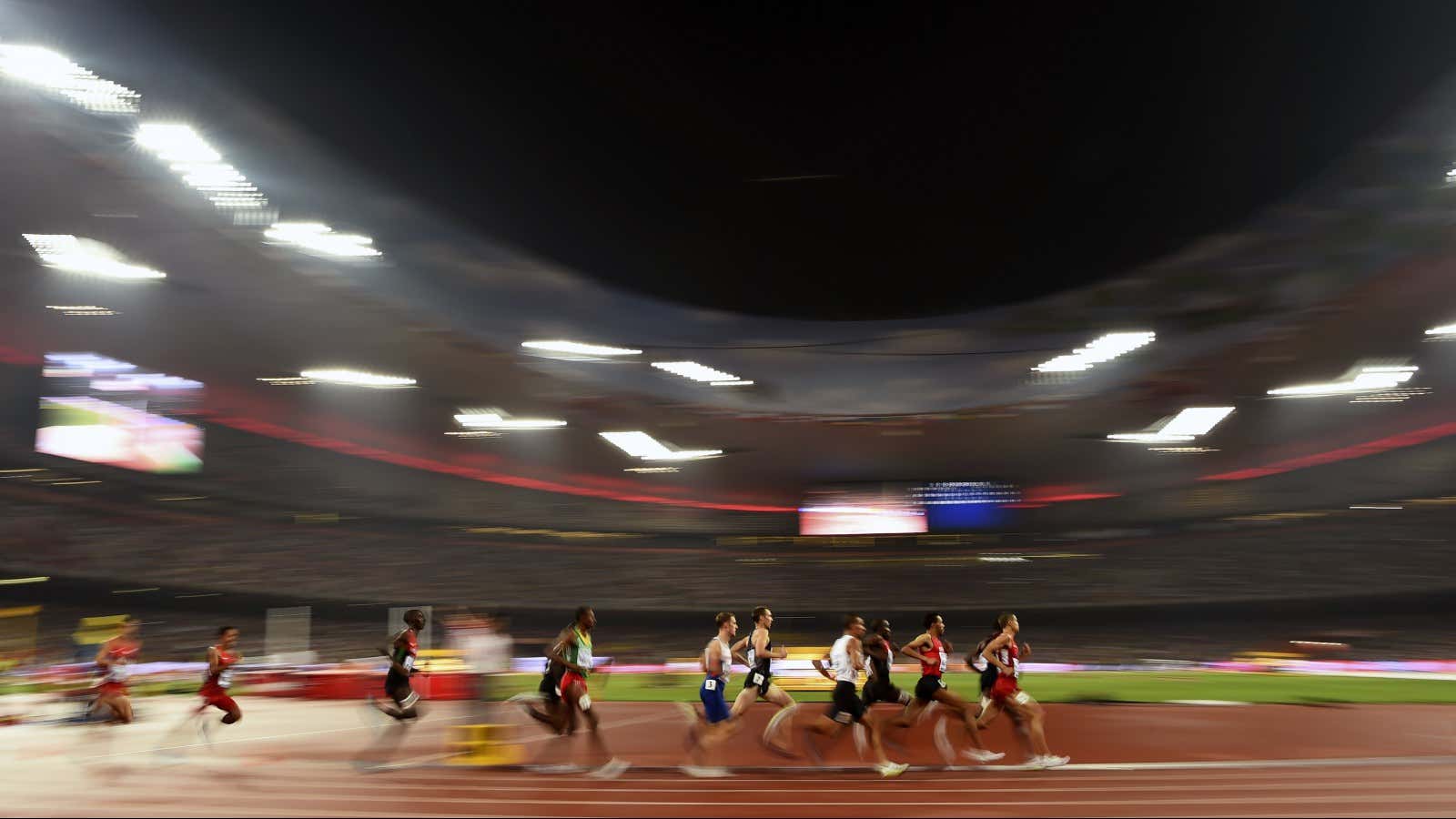The International Association of Athletics Federations (IAAF), which governs the sport of track and field, is rife with corruption—from cheating athletes and the administrators who blackmailed them to top executives who willfully ignored wrongdoing.
After a year-long investigation, the World Anti-Doping Agency (WADA) issued a report yesterday (Jan. 14) referencing ”imbedded”[sic] and “systemic” corruption in the IAAF’s handling of doping violations.
The report is a follow-up to a probe four months ago that focused on track and field in Russia and exposed extensive state-sponsored cheating. As a result, Russian athletes have been banned from track and field events at the upcoming 2016 Olympics in Rio de Janeiro.
Now the WADA is confirming suspicions that Russia was not the only cheater, and that the IAAF enabled Russia’s doping. For example, the report found instances in which the IAAF secretly informed Russia’s athletic federation of the results of drug tests—allowing at least nine athletes who were “likely doping” to continue competing.
The new allegations are not exactly a surprise; former IAAF president Lamine Diack and a handful of his advisers have been under criminal investigation since November 2015, partly for the extortion of Russian long-distance runner Liliya Shobukhova. But WADA’s report suggests that the IAAF’s dealings with Russian athletes may have been just “the tip of the iceberg.”
In an echo of the ever-widening FIFA corruption scandal, WADA suggests that Diack may have accepted bribes in deals for television broadcast rights relating to IAAF competitions. The true concern raised in the WADA report, however, is that of nepotism, and how its effects trickled down to athletes, affecting the outcomes of races around the world.
The report alleges that Diack, who served as IAAF president for 16 years ending in August 2015, “intentionally formed” an “informal illegitimate governance structure” at the top of the organization, recruiting his sons as advisers and circuitously skirting formal administrative protocols. WADA argues that the bulk of unethical—and possibly criminal—behavior was orchestrated by Diack and his “inner circle” (PDF, p. 46):
The corruption that occurred within the IAAF was not at the level of some foreign currency trader in a bank carrying out unauthorized transactions, without the knowledge or permission of the responsible bank officers. Here, it started with the President of the organization. It involved the Treasurer of the organization. It involved the personal counsel of the President, acting on instructions of the President. It involved two of the sons of the President. It involved the director of the Medical and Anti-Doping department of the IAAF. The corruption was imbedded in the organization. It cannot be ignored or dismissed as attributable to the odd renegade acting on his own.
The current IAAF president, Olympic gold medal-winning distance runner Sebastian Coe, is only mentioned once in the 95-page report and has not been accused of either knowing or participating in unethical or illegal behavior.
